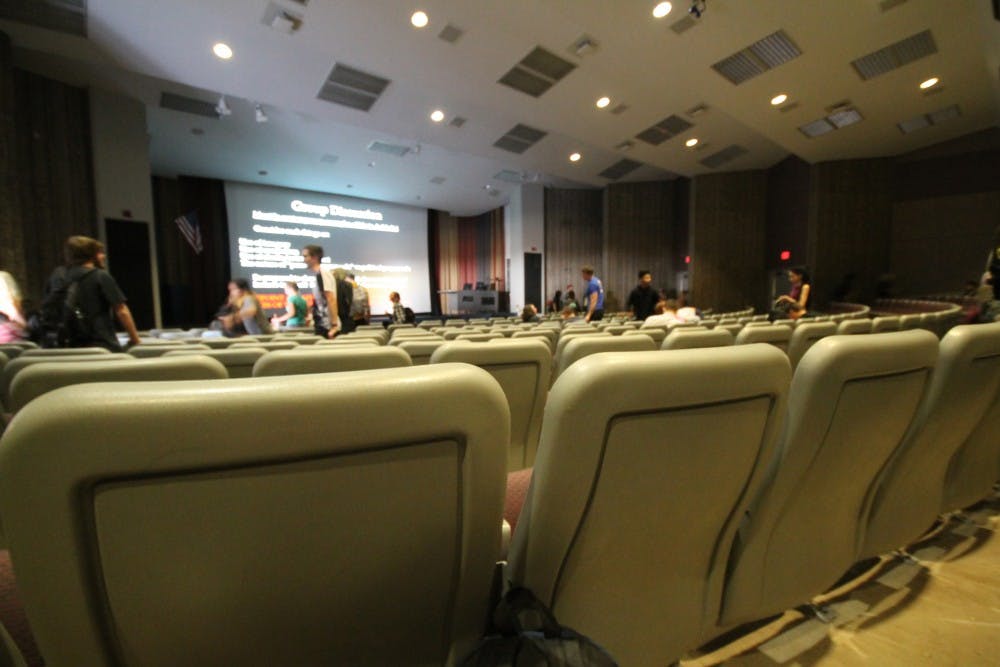Everyone has taken a Sociology 101, Psychology 101 class or Communication 100 class. In my own experience, these courses are heavily dependent on student memorization as opposed to professor instruction. While the information in these classes is important, ASU should alter the way these classes work to save money and time.
I believe that the nature of those three courses (less instruction, more memorization) allows that all of them could be successfully moved to online iCourses, and that the professors currently teaching them are overqualified. There are pros to holding these courses in a large lecture hall format, but the benefit in restructuring these classes outweighs the harm. Furthermore, moving the professors teaching them will cause no harm.
First, some calculations provide interesting information:
In fall of 2016 there will be 19 Psychology 101 courses, one of which is an iCourse; 15 Sociology 101 courses, two of which are iCourses; and 17 Communication 100 courses, one of which is an iCourse. So in total, 47 of those courses will be taught by professors for 2.5 hours per week each, totaling in 117.5 hours of in class instruction.
Obviously professors work outside of the classroom a lot too, but the other hours they work outside the classroom are dependent on the hours of teaching they do.
If we found a way to eliminate the 117.5 hours of teaching per week that will go into those three courses next semester, that would reflect immediate savings every semester just on salaries that would have been paid to professors for those hours.
Those salaries are only a fraction of ASU’s budget, but it should be taken into consideration anyway. At a time when growing tuition prices are a constant concern, any option available for cutting costs should be taken seriously. On top of that, there are costs that would be eliminated through the reduction of these classes besides professor salaries. Lecture halls would have more vacancy, lowering the need to purchase and build new ones as ASU grows, and students would have more time to expedite their graduation. Currently, as seen below, the biggest chunk of ASU's budget goes into class instruction, so it makes sense to look for cuts in that department.
From a student’s perspective, ASU in-state tuition is over $9,000, making 30 credits a year cost over $300 per credit. This means that we should be very aware of the credits we must take. Sociology 101, Psychology 101 and Communication 100 are all classes worth taking, but I would feel more comfortable if I were sure that they were as inexpensive as possible. That way, as time goes on and ASU innovates its class structure, the price per credit will hopefully go down.
It is only fair to mention that there are various benefits to taking introductory Sociology, Psychology and Communication courses in a lecture hall setting. Giving new college students an opportunity to form study habits and to meet one another to form study groups is a useful function. Furthermore, I have noticed my own 101 teachers offer useful advice and guidance to new college students. In fact, I learned a lot of useful things in my 101 classes from my professors; I just believe the classes can and should be less expensive to operate.
The clicker attendance rate in my own 400-person Sociology and Psychology classes was often below 50 percent, and most readers have probably seen similar turnouts, so altering the class structure to an all online format might actually improve student responsiveness while cutting costs. Luckily, the process of cutting the costs incurred by these classes does not have to be destructive. ASU should at least make all of them iCourses and reduce the number of professors teaching them, but this will not hurt the current professors.
The professors currently teaching these courses certainly do not have to lose parts of their salaries; their expertise could be allocated elsewhere where their in-depth knowledge could be utilized in the best way. ASU grows every year, meaning that as the years go on, more and more students will enroll in upper-division courses. Professors currently in charge of those 101 courses, many of who already teach upper-division courses, could be entirely moved to 300 and 400 level classes. Then ASU would not need to hire more teachers to cover the future growth and influx of students in upper-division courses. That relocation process preserves, if not even improves, the 101 professors' current positions.
This suggestion should appeal to ASU as an outlet for innovation: It’s likely that the way many of our classes work is outdated, especially introductory ones. Just as the online offering at ASU is constantly being improved, the traditional class structures should be reevaluated and improved as well. If ASU revamps these classes, students and ASU can save, and our professors can be moved to more fitting positions. It seems that reformatting some mandatory classes helps everyone, and ASU should begin that process now.
Related Links:
Letter: Online classes misrepresented
Editorial: Online course offerings, regulations need face-lift
Reach the columnist at gheiler@asu.edu or follow @heilergeorge on Twitter.
Editor’s note: The opinions presented in this column are the author’s and do not imply any endorsement from The State Press or its editors.
Want to join the conversation? Send an email to opiniondesk.statepress@gmail.com. Keep letters under 300 words and be sure to include your university affiliation. Anonymity will not be granted.
Like The State Press on Facebook and follow @statepress on Twitter.




